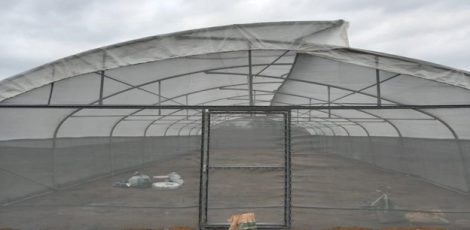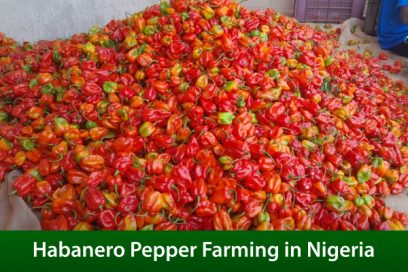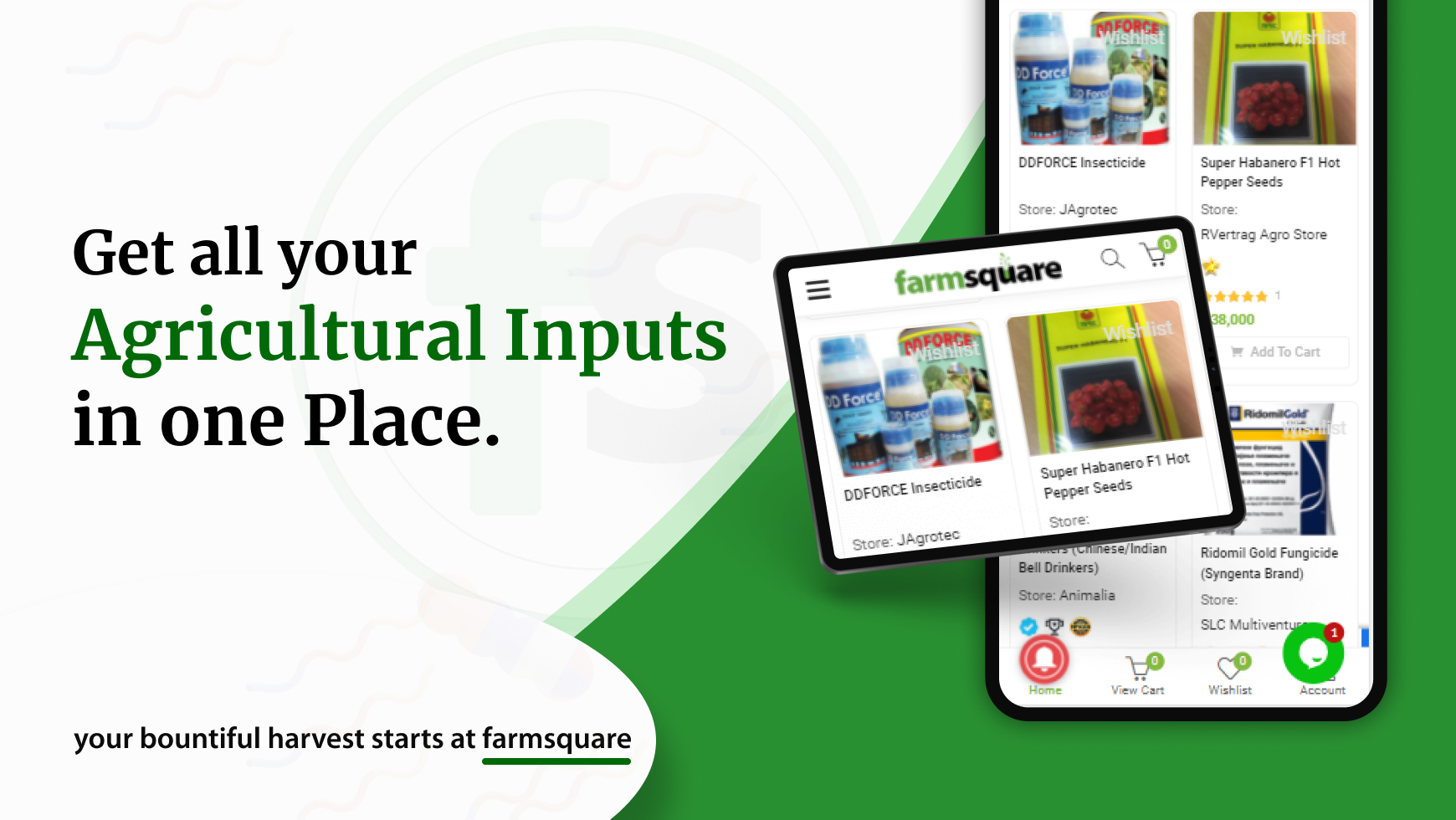- You have no items in your shopping cart
- Subtotal: ₦0
In recent years, Nigeria has seen a surge in the adoption of innovative agricultural practices to combat food security challenges and seasonal production. One such groundbreaking method is greenhouse farming. This eco-friendly and highly efficient approach is rapidly gaining popularity in Nigeria, thanks to its ability to enable all-year-round cultivation, protect crops from harsh weather conditions (climate change) and optimize resource use.
Farmsquare, comes with a full solution to tackle the problem of vegetable shortage, due to low yield per square meter of land and loss of capital in agriculture over the years. With our partnership with AGMC headquartered in Jordan, a country with vast knowledge accumulated from different challenges in vegetable farming, and breakthrough discoveries that have been recorded with over 40 years of existence. Our partners are known to have produced 2/3 of the one million greenhouses in Jordan. Together, we have been able to revolutionize agriculture in Nigeria for sustainability, maximum productivity, and effective all-seasoned output in vegetable farming and knowledge transfer of more than 1000 Farmers, which we believe has transformed Nigeria and by extension Africa’s agricultural and nutritional landscape.
In addition, recent modifications have been made in our greenhouses to suit perfectly the weather and climatic conditions of Nigeria for optimum results. Even as we produce in Nigeria, we still maintain international standards of greenhouses.
Our partner team of Engineers from Jordan is always on standby to attend to technical matters of our customers and ensure the success rate of every crop grown.
Our Greenhouse Types and Sizes Include:
1. Fully Automated/Computerized Greenhouse:
Our fully automated greenhouse is equipped with systems that control all aspects of the crop production environment, including temperature, humidity, lighting, and irrigation control systems. This allows farmers to produce high-quality crops all year round, regardless of the weather outside. The fully automated greenhouse system allows farmers to create a perfect growing environment for their crops, which leads to higher yields and better-quality crops. Although the fully automated greenhouses may seem a bit more expensive than the multi-span greenhouses. However, they require less manual labor to operate because all controls are automated, which saves you money in the long run. Our fully automated greenhouse can be specially customized to meet your specific needs and preferences.
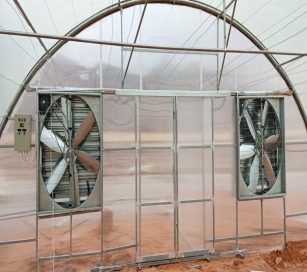
Example of an Automated Greenhouse
2. Multi-Span Greenhouse:
Our multi-span greenhouses are made up of multiple spans, and sections. It is typically less expensive to build than a fully automated greenhouse. Although it may require more manual labour to operate, the multi-span greenhouses are a good option for farmers who are on a lean budget and looking for a greenhouse that is easier to operate. This system is also suitable for farmers who need a greenhouse that is large enough to accommodate and grow a variety of crops at the same time. The standard sizes for our multi-span greenhouses are the small size of 8m by 24m, and the medium size of 8m by 48m.
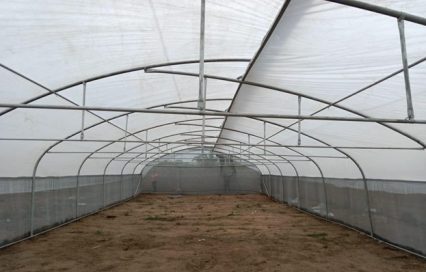
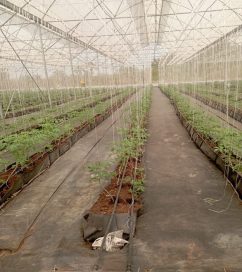
Example of the Multi-span Greenhouse
Our Greenhouse package offering includes the following:
- Greenhouse
- Installation
- Drip irrigation facilities
- Seedling trays
- Fertilizer/Agrochemicals
- Mulching film
- Central technical expert for the farm settlement
Here are also the reasons why you should get your Greenhouse equipment and Installation done with Farmsquare:
- Knowledge transfer of vegetable farming.
- Maintenance of quality international standard
- Competitive Pricing
- Fast and timely delivery
- Zero welding for all points in the greenhouse structure
- The use of non-corrosive G90 hot galvanized steel.
- Our greenhouses are built with premium and high-quality materials, ensuring durability and longevity.
- We provide expert guidance and support to help you make the most of your greenhouse farming venture.
- Experience convenient shopping by exploring our e-commerce shop for a wide range of greenhouse equipment, from frames to irrigation systems and so much more at your fingertips.
Benefits of Greenhouse Farming:
1. All-Year-Round Cultivation: Greenhouses enable farmers to grow crops throughout the year, ensuring a consistent food supply and more income.
2. Optimized Resource Use: Controlled environments of the greenhouse reduce water consumption and minimize the use of pesticides and fertilizers, promoting sustainable agriculture.
3. Higher Yields: Greenhouses provide crops with optimal conditions, leading to increased yields and better-quality produce.
4. Weather Protection: Crops are shielded from extreme weather events such as heavy rains, storms, excessive heat, and even pests and cattle invasion, thereby reducing the risk of crop production failure.
5. Extended Growing Seasons: Greenhouse farming allows farmers to extend growing seasons, enabling the cultivation of seasonal crops beyond their typical harvest periods.
Frequently Asked Questions about Greenhouse Farming:
1. Q: What are the advantages of greenhouse farming in Nigeria?
A: Greenhouse farming in Nigeria offers all-year-round cultivation, protection from adverse weather, increased crop yields, optimal resource use, and the ability to grow high-value crops, ensuring consistent income for farmers.
2. Q: Can greenhouse farming be practiced in all regions?
A: Yes, greenhouse farming can be adapted to various regions in Nigeria. However, specific greenhouse designs and crop choices could be made based on the local climate and environmental conditions of each region.
3. Q: What types of crops are most suitable for greenhouse farming?
A: Crops like tomatoes, peppers, carrots, cucumbers, lettuce, strawberries, and herbs, (such as basil and mint), including all kinds of vegetables, are well-suited for greenhouse cultivation due to their high market demand and adaptability to controlled environments.
4. Q: How much water is needed for greenhouse farming, and how is it managed?
A: Greenhouse farming typically uses drip irrigation systems, which optimize water usage. The exact water requirement varies based on crop type, size of the greenhouse, and local climate. Monitoring systems ensure precise water delivery to plants, minimizing wastage.
5. Q: What is the expected return on investment for greenhouse farming?
A: The return on investment in greenhouse farming varies depending on factors like crop choice, market demand, greenhouse technology, and management practices. With proper planning and execution, greenhouse farming can yield significantly higher profits compared to traditional open-field farming.
6. Q: How do pests and diseases get controlled in greenhouse farming?
A: Greenhouses employ integrated pest management strategies, including biological controls, beneficial insects, and organic pesticides. Additionally, the controlled environment of greenhouses reduces the risk of diseases, minimizing the need for chemical treatments.
7. Q: What is the lifespan of a greenhouse structure, and how is maintenance handled?
A: The lifespan of a greenhouse structure depends on the quality of materials used and regular maintenance. With proper care, a greenhouse can last 10–15 years or even longer. Maintenance includes cleaning, repairing damaged components, and ensuring the functioning of every manual and automation system.
8. Q: Can small-scale farmers afford greenhouse technology?
A: Yes, there are various greenhouse options available to suit different budgets. Some organizations and government initiatives also provide financial assistance and training programs to help small-scale farmers adopt greenhouse farming practices.
9. Q: Are there training programs available for greenhouse farming?
A: Yes, there are training programs, workshops, and online resources available in Farmsquare especially, to educate farmers about greenhouse technology, cultivation techniques, and best practices. These programs empower farmers with the knowledge and skills needed for successful greenhouse farming.
10. Q: How can farmers monitor and control greenhouse conditions remotely?
A: Greenhouses can be equipped with sensors and automation systems that can be monitored and controlled remotely through smartphones or computers. Farmers can access real-time data on temperature, humidity, irrigation, and other parameters, allowing them to make timely adjustments for optimal crop growth. For example: the fully automated/computerized Greenhouse can be equipped with advanced temperature monitoring and irrigation facilities, these types of greenhouses ensure precise control over environmental factors, maximizing crop yield.
Ready to Transform Your Farming Experience?
Investing in greenhouse farming is a game-changer for your agribusiness, offering sustainable solutions to production challenges. To embark on your greenhouse farming journey with Farmsquare, visit our Greenhouse Shop here greenhouse product category link or contact us on Whatsapp: +234902444522 to explore our selection of high-quality greenhouse equipment.
Together, let’s revolutionize your Agribusiness and secure a greener, more prosperous future for you in food production.
Join Farmsquare and embrace the future of farming!
